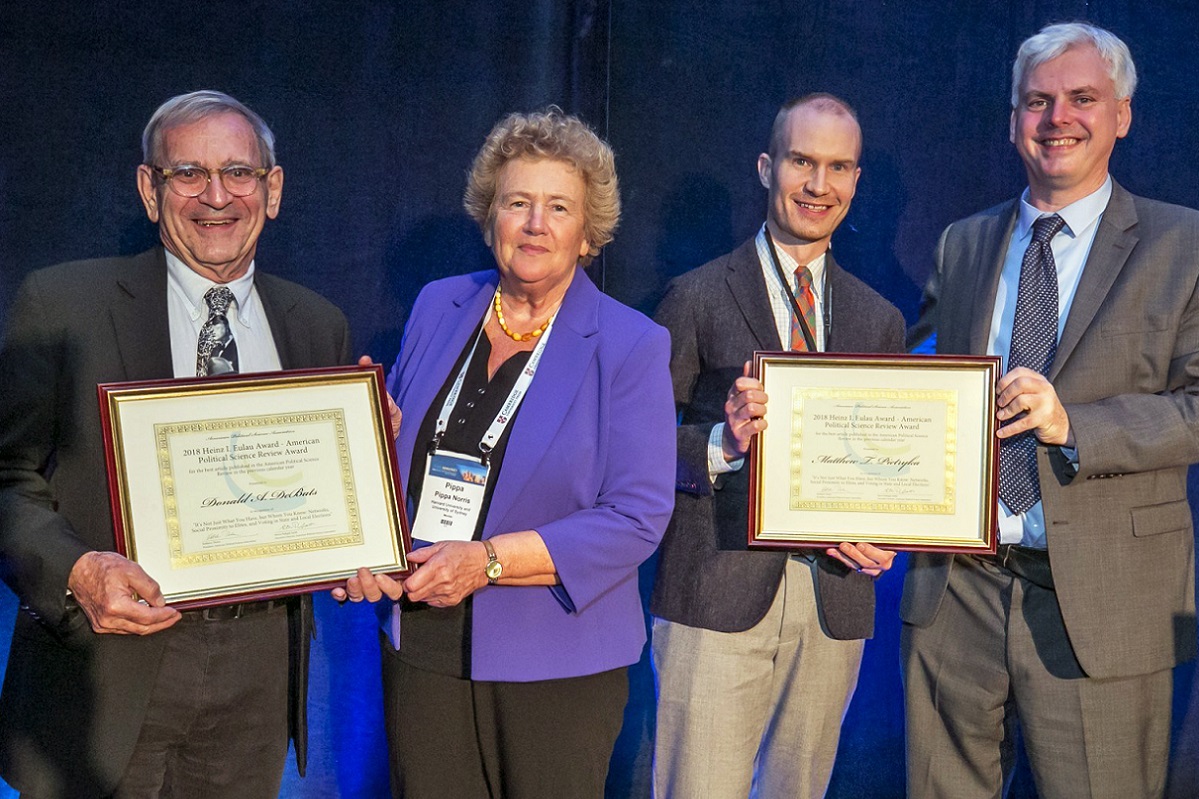
Flinders Head of American Studies, Professor Donald DeBats, was recently presented with two awards in honour of his contributions to American political science, commending his analysis of newly available data on 19th century voting and its relevance today.
He was awarded the American Political Science Association’s 2018 Heinz Eulau Award for the best article published in the American Political Science Review and in Perspectives on Politics during 2017, and also the Association’s Political Networks section 2018 Political Ties Award for the best published article on political networks in any journal over the past two years.
The prize-winning article, ‘It’s Not Just What You Have, but Whom You Know: Networks, Social Proximity to Elites, and Voting in State and Local Elections,’ co-written with Matthew Pietryka, analysed voter behaviour in 19th century Virginia and Kentucky using newly discovered data of oral, or by-voice voting. The two scholars matched this previously un-mined resource with publicly available information to provide a comprehensive overview of individuals’ social networks, and analysed the influence of spatial and social proximity to voter participation and partisan preferences. A contemporary comparison added to the robustness of the findings.
Professor DeBats was presented with his awards at the 2018 APSA Annual Meeting & Exhibition, which is the world’s largest gathering of political scientists, on 30 August 2018.
His research work is supported by two Collaborative Research Awards from the US’s National Endowment for the Humanities and focuses on North American voting in the nineteenth century, in particular the records from by-voice (viva voce) elections and the clues they reveal for understanding American political outcomes from colonial days to the end of the nineteenth century.
Professor DeBats says that knowable voting disappeared from American politics with the adoption of the Australian secret ballot in the 1890s, however it is emerging again alongside the relentless expansion of mail-only and early voting.
“As the great concern for secrecy in voting wanes, and comes to be perceived as excessively individualising and isolating, we see once again voting understood as properly communal, whether that be amongst family, friends, or indeed neighborhoods,” he says.
In addition to his position at Flinders, Professor DeBats is a visiting Professor at the University of Virginia and a Residential Fellow at Virginia Humanities.

